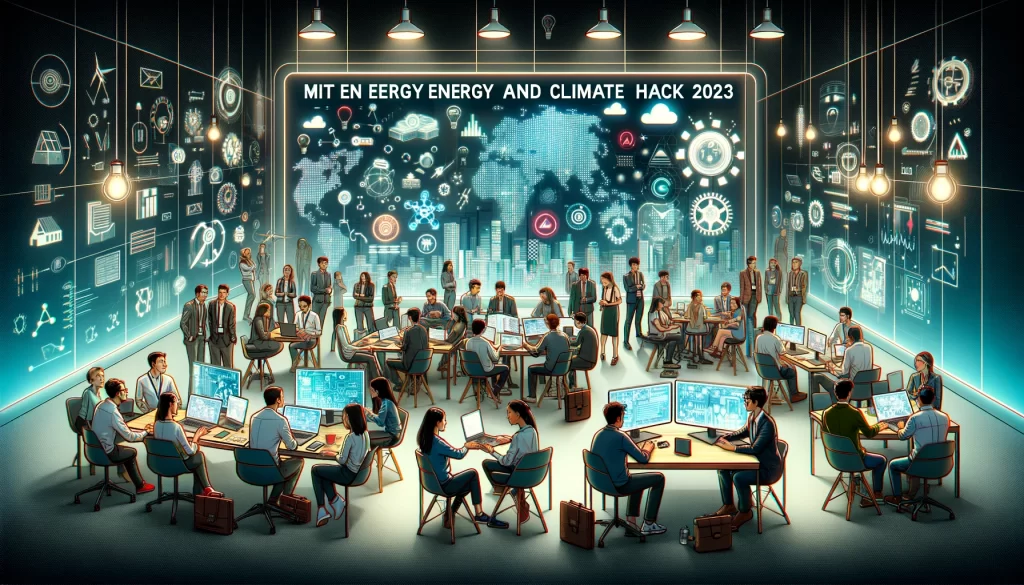At the MIT Energy and Climate Hack 2023, students and industry leaders gathered to brainstorm innovative solutions to the pressing global energy and climate crisis. The hackathon, held from November 10-12, saw widespread participation from students worldwide, both on-site and virtually.
Since its inception in 2013, the MIT Energy and Climate Hack has been a cradle for sustainable and innovative solutions. This year’s event continued the tradition, bringing together diverse minds eager to tackle climate challenges. Claire Lorenzo, an MIT student organizer, noted the participants’ enthusiasm and the immediate formation of impactful ideas.
The hackathon began with industry leaders presenting urgent energy and climate-related challenges. Participants then formed teams to devise solutions within a two-day timeframe. The focus areas included energy markets, transportation, and agriculture, with corporate sponsors like Google and Schneider Electric contributing to the dialogue.
A key highlight of this year’s hackathon was the emergence of artificial intelligence as a tool for crafting climate solutions. Lorenzo, studying computer science, expressed excitement about AI’s potential applications in various domains like transportation and agriculture. Four primary AI applications were emphasized: accelerating discovery, optimizing solutions, improving prediction algorithms, and processing unstructured data.
Lorenzo reflected on the hackathon’s collaborative spirit, emphasizing the need for multi-industry cooperation to address climate change effectively. The event concluded with team presentations, leading to the selection of team Fenergy as the winners. Their project, ‘Unbiased Cathode,’ utilized a large language model to streamline the development of new battery technologies.
Lorenzo’s takeaway from the event was a renewed sense of hope. Witnessing the participants’ dedication to finding solutions instilled optimism about the future of climate action. The MIT Energy and Climate Hackathon stands as a testament to the power of collaboration and innovation in addressing global challenges.
For more information or to participate in next year’s event, students can visit the MIT Energy and Climate Hackathon website.







